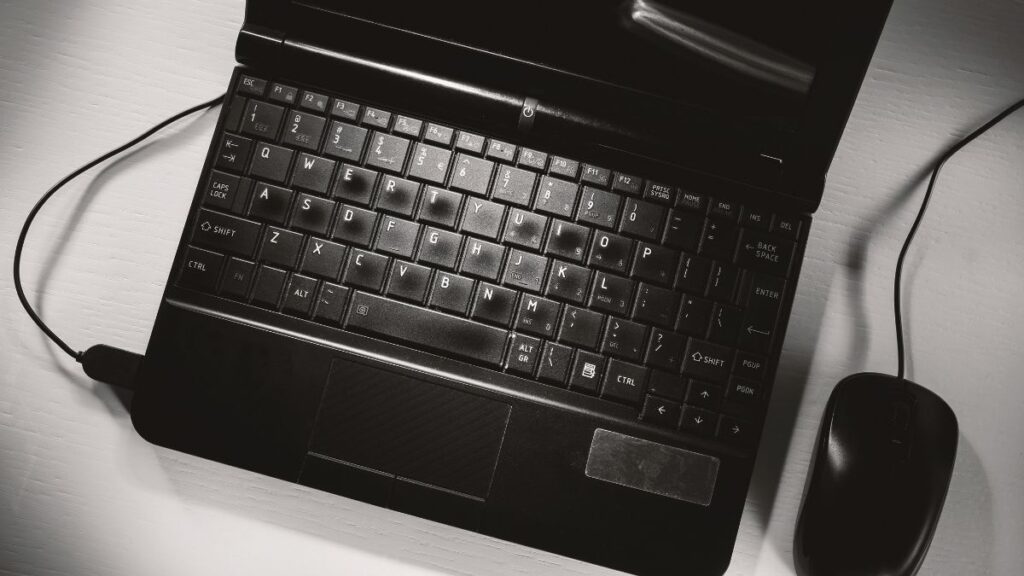With the recent rise in home working, many businesses are scrambling to supply their employees with laptops so that they can work effectively while away from the office. The first instinct can often be to buy the cheapest laptop available, especially if you are buying multiple machines at once.
This is not normally a good way to approach things. In this article we’re going to go over some of the ways that companies can find themselves let down by budget hardware and demonstrate that cheap laptops often come with hidden costs that you may not have considered.
Time Equals Money
Cheaper laptops often have older and slower hardware. This includes single core processors and hard disk drives. When compared to slightly higher-end models with solid state drives and multi-core processors, these cheaper laptops will perform worse in benchmark tests. In real terms this means that even simple, everyday tasks will take exponentially longer to complete.
Take for example, booting up the laptop when it is turned on in the morning. A laptop with an SSD drive will often boot in less than a minute (sometimes as quickly as a few seconds). A cheaper laptop with an optical disk drive will often take several minutes from being tuned on to being usable.
For an example of how this can erode any “savings” you have made on a cheaper laptop, let’s say it takes an extra 5 minutes to boot up your machine every working day, over the course of a year that would equate to nearly 22 hours of lost time. You wouldn’t knowingly pay an employee to sit there doing nothing for nearly three working days, but by buying a cheaper laptop that’s exactly what you are doing. And booting up won’t be the only thing that it is slower to do! Taking in to account the extra minutes and seconds that everyday tasks will require, you could end up losing multiple days of productivity over the course of a year. So, the £100 saved on the laptop may end up costing you five times as much (or more!) in wasted employee time.
Cheaper Laptops Have Poor User Experience
In order to cut costs, budget laptops are often made with the cheapest available parts. To the naked eye a cheap laptop, a mid-range laptop, and a high-end laptop might look very similar, but after a week of using them, it becomes clear what sets one apart from another.
Some examples include poor quality keyboards and trackpads. The keyboard will probably be uncomfortable to use and is more likely to suffer from dropped letters or double letters as you type. The trackpad will likely be less responsive. This means that many users will end up requesting an external keyboard or mouse, which immediately cuts into any saving that may have been made on the laptop.
The screen quality on cheaper laptops can also be a problem, especially if your employee will be using them for 8+ hours a day. Lower resolution and slow screen refresh rates can cause headaches and eye strain, which in turn reduces productivity and energy levels among your employees.
Cheaper Laptops Need More IT Support
As managed IT support experts, we have provided IT services to a variety of different businesses with different levels of hardware and different budgets. Without fail, the cheaper the laptop, the more maintenance it requires. Cheaper laptops go wrong more often, break more often, wear out quicker and as such, they cost a business more in IT support. This is another hidden cost that is not immediately apparent when looking at a laptop’s price tag.
Businesses which choose cheap laptops often find themselves making IT support calls requesting health checks when the laptop starts running slowly. In reality, there is nothing technically “wrong” with their laptop, it is just that they are getting what they paid for. Even the best IT support in the world can’t make a laptop work faster than the hardware inside it. This means that businesses waste money and endure even more employee downtime waiting for laptop to be “fixed”.
Cheaper Laptops Are Less Reliable
Losing time is bad enough, but losing work is even worse. Budget laptops are often less reliable and more prone to unexpected system crashes. This can result in losing hours of work if you are working on an unsaved document when this happens. Obviously, we all know we are supposed to save our work regularly and keep backups etc, but in reality, users will often forget to do so. The more reliable a computer is, the less likely you are to lose work.
Similarly, the optical drives in cheaper laptops are more prone to mechanical failure, which can lead to you losing all the data which is saved locally on the machine.
Consider Why The Laptop Is So Cheap
Prices are not determined randomly, if a laptop is cheap, it’s probably for one of two reasons.
- It is made from cheap components.
- It is an out-of-date model.
If You Use Something Every Day, Make Sure It Is High Quality
The writer Bruce Sterling once said, “if you touch something every day, make sure it is of the highest quality you can afford”. This is a good mantra to live one’s life by. Anyone who has tried buying the cheapest shoes they can get knows they will fall apart in weeks and give you blisters along the way. Anyone who has bought the cheapest mattress they could find will probably tell you they had back ache. And the cheapest food doesn’t tend to be the most nutritious either! So why would the cheapest laptop be a good investment?
We hope this has given you some perspective on the disadvantages of budget laptops and helped demonstrated that the upfront savings on cheap laptops often do not make up for the lost productivity, increased maintenance and repairs costs, and employee stress that accompanies them. “Saving” £100 today could easily cost you several hundred more in the long term.
Need Help Choosing A Laptop?
If you are struggling to choose the right hardware for your team, whether it is laptop, desktops, business mobiles, or something more specialised, Carden IT Services’ procurement expertise can help you make the right choice.




